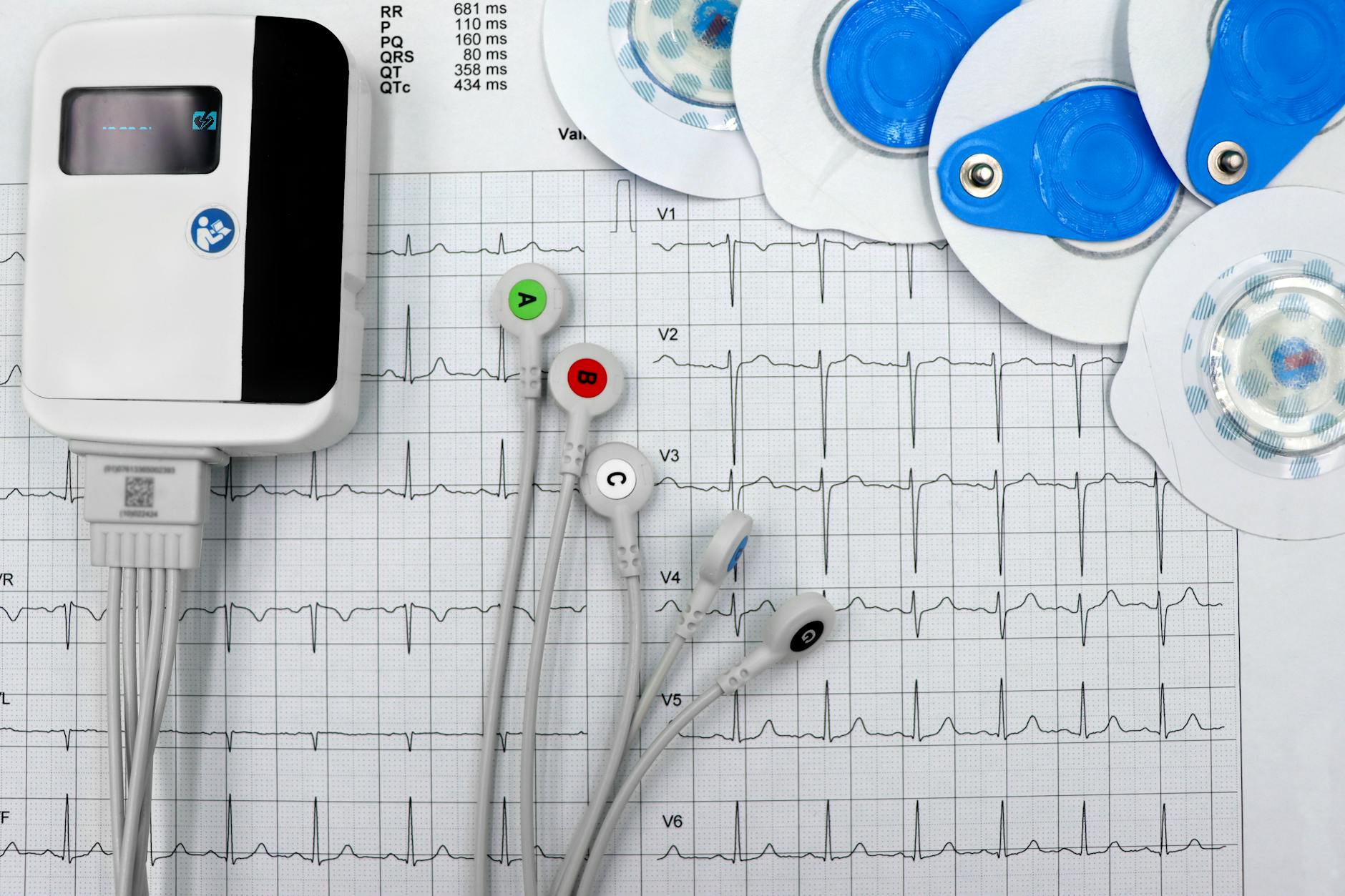Heart disease remains the leading cause of death among seniors in the United States, according to the Centers for Disease Control and Prevention (CDC). Understanding and preventing heart disease in seniors is crucial for prolonging life and enhancing the quality of those golden years. We’ll explore the types of heart diseases in seniors, their symptoms, treatments, and preventive measures. Additionally, we’ll offer actionable tips on maintaining heart health and navigating Medicare coverage for heart-related treatments.

Understanding Heart Diseases in Seniors
Heart disease is an umbrella term encompassing various conditions affecting the heart, each with unique causes and treatments. The most common types among seniors include:
1. Coronary Artery Disease (CAD)
CAD occurs when the arteries supplying blood to the heart muscle become hardened and narrowed due to plaque buildup. This can lead to heart attacks and is the most common type of heart disease in seniors.
2. Heart Failure
Also known as congestive heart failure, this condition happens when the heart can’t pump enough blood to meet the body’s needs. It often results from CAD, high blood pressure, or previous heart attacks.
3. Arrhythmias
These are irregular heartbeats that can lead to various complications, including stroke. The most common type in seniors is atrial fibrillation.
4. Heart Valve Disease
This occurs when one or more of the heart’s valves don’t function correctly, which can lead to heart failure if left untreated.
Symptoms of Heart Disease
Recognizing the symptoms of heart disease is vital for early intervention. Here are some common signs seniors and their caregivers should be aware of:
- Chest Pain or Discomfort: This may feel like pressure, squeezing, or fullness.
- Shortness of Breath: Often occurs with physical activity or at rest.
- Fatigue: Unusual tiredness could indicate heart problems.
- Swelling: Particularly in the ankles, feet, legs, or abdomen.
- Palpitations: Irregular heartbeats or a feeling of fluttering in the chest.
- Dizziness or Lightheadedness: Can accompany other symptoms or occur independently.
It’s essential to seek medical attention if these symptoms are present, as they can indicate an underlying heart condition.

Treatment Options for Heart Disease
Treatment for heart disease in seniors often involves a combination of lifestyle changes, medications, and potentially surgical interventions. Here’s an overview of common treatments:
Lifestyle Modifications
- Diet: A heart-healthy diet rich in fruits, vegetables, whole grains, and lean proteins can significantly impact cardiovascular health.
- Exercise: Regular physical activity, such as walking, swimming, or yoga, helps strengthen the heart and improve overall health.
- Smoking Cessation: Quitting smoking is one of the most effective ways to improve heart health.
- Stress Management: Techniques like meditation, deep breathing exercises, and hobbies can reduce stress and benefit the heart.
Medications
Doctors may prescribe several types of medications to manage heart disease, including:
- Statins: Lower cholesterol levels.
- Beta-blockers: Reduce blood pressure and heart rate.
- ACE Inhibitors: Help relax blood vessels.
- Anticoagulants: Prevent blood clots.
Surgical Interventions
In some cases, surgery may be necessary to treat heart disease. Common procedures include:
- Angioplasty: Opens blocked arteries using a balloon or stent.
- Bypass Surgery: Creates a new pathway for blood flow around blocked arteries.
- Pacemaker: Regulates heart rhythm in cases of arrhythmias.

Preventive Measures
Preventing heart disease in seniors involves proactive measures that focus on lifestyle modifications and regular medical checkups. Here are some key strategies:
1. Maintain a Heart-Healthy Diet
A balanced diet plays a crucial role in preventing heart disease. Seniors should focus on consuming:
- Fruits and Vegetables: Rich in vitamins, minerals, and antioxidants.
- Whole Grains: Such as oatmeal, brown rice, and whole-wheat bread.
- Lean Proteins: Like fish, chicken, and legumes.
- Healthy Fats: Found in nuts, seeds, and olive oil.
2. Regular Physical Activity
Staying active is essential for heart health. Seniors should aim for at least 150 minutes of moderate-intensity aerobic activity per week, along with muscle-strengthening activities on two or more days a week.
3. Monitor Blood Pressure and Cholesterol Levels
Regular monitoring and management of blood pressure and cholesterol levels can help prevent heart disease. Seniors should have their levels checked regularly and follow their doctor’s recommendations for maintaining them within a healthy range.
4. Avoid Smoking and Limit Alcohol Consumption
Smoking is a significant risk factor for heart disease. Quitting smoking can drastically reduce the risk. Additionally, limiting alcohol consumption can help maintain heart health.
5. Manage Stress
Chronic stress can negatively impact heart health. Seniors should engage in activities that promote relaxation, such as meditation, yoga, or spending time with loved ones.
6. Regular Medical Checkups
Routine medical checkups allow for early detection and management of potential heart issues. Seniors should schedule regular visits with their healthcare provider and adhere to prescribed treatment plans.
Understanding Medicare Coverage for Heart-Related Treatments
Navigating healthcare coverage can be challenging, but understanding what Medicare covers for heart-related treatments is essential for seniors. Medicare provides coverage for various heart-related services, including:
- Preventive Services: Such as cardiovascular screenings and wellness visits.
- Diagnostic Tests: Including EKGs, stress tests, and blood tests.
- Medications: Many heart medications are covered under Medicare Part D.
- Surgical Procedures: Such as angioplasty and bypass surgery.
- Cardiac Rehabilitation: Programs that help improve heart health post-surgery or heart attack.
Seniors should consult with their healthcare provider and Medicare representative to understand their specific coverage and benefits.
Relevant Research and Case Studies
Numerous studies highlight the importance of preventing heart disease in seniors and the effectiveness of various interventions. Here are some key findings:
- A study published in the Journal of the American Heart Association found that regular physical activity significantly reduces the risk of heart disease in seniors.
- Research conducted by the National Institutes of Health indicates that a Mediterranean diet rich in fruits, vegetables, and healthy fats can lower the risk of cardiovascular disease.
- A case study published by the American College of Cardiology demonstrated the benefits of cardiac rehabilitation programs in improving the quality of life for seniors post-heart attack.
Heart health is important
Preventing heart disease in seniors is a critical aspect of maintaining overall health and well-being. By understanding the types of heart disease, recognizing symptoms, exploring treatment options, and implementing preventive measures, seniors and their caregivers can take proactive steps toward a healthier future.
At StrongLovingLife, we believe in empowering seniors with Medicare knowledge and tools they need to lead heart-healthy lives. For personalized Medicare guidance and support, we invite you to book a consultation with Sharanda Strong Henry.














